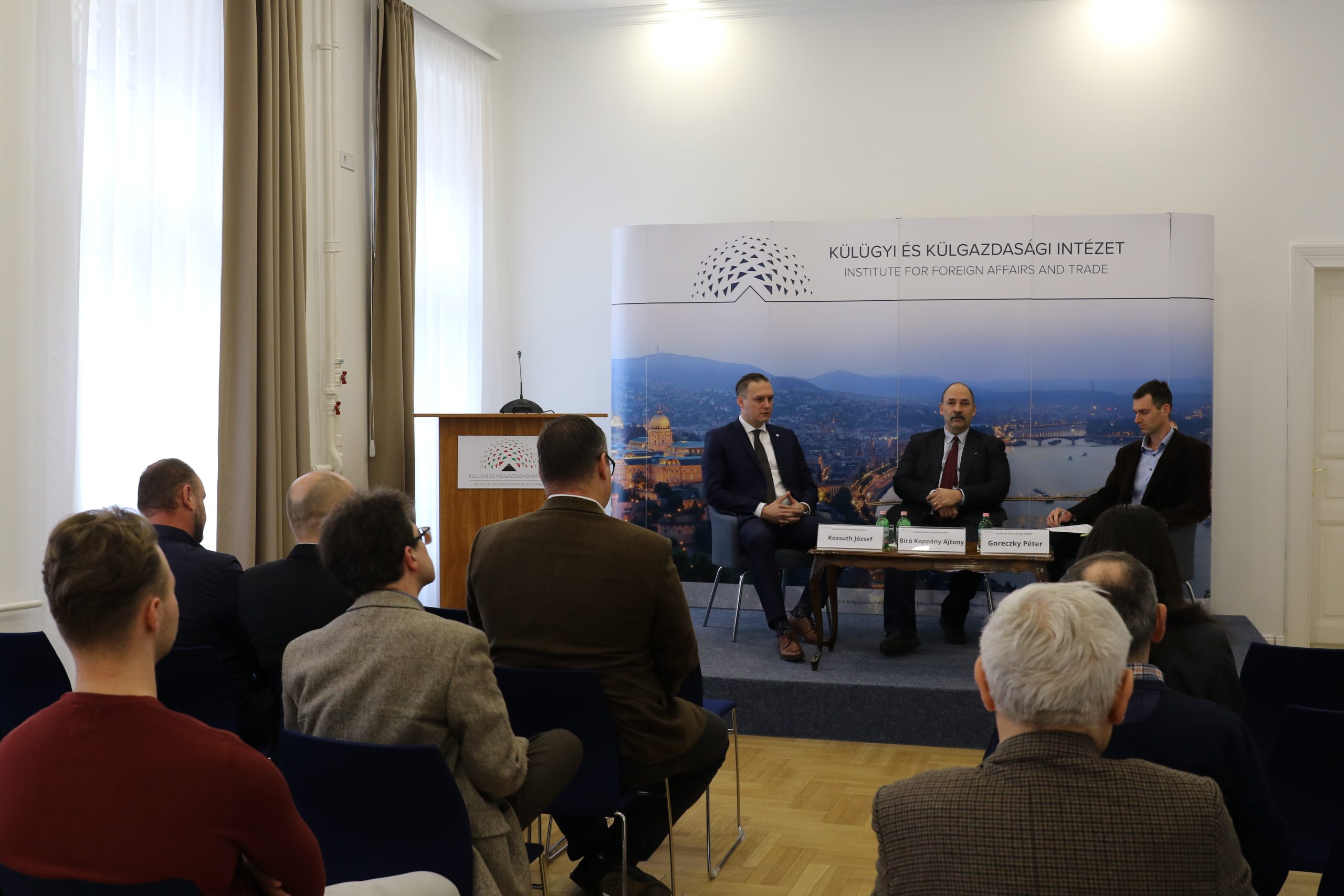On 30th of March 2023, the panel discussion International Trade and Logistics in a Changing World was organised by the Institute for Foreign Affairs and Trade (IFAT), with the participation of Koppány Ajtony Bíró – Secretary General of the Association of Hungarian Logistics Service Centres, and József Kossuth, Cargo Director of Budapest Airport Zrt. The discussion was moderated by Péter Goreczky, Senior Analyst at KKI.
The discussion itself was structured around key issues affecting international trade. Among these, the experts highlighted the ’trade-war’ between China and the United States, which has led to a slowdown in growth in global trade and logistics since 2018. The impact on the global economy of the coronavirus was also highlighted, as it has also hit international trade. Both agreed that this period demanded the resilience from the actors of intrenational trade, to deal with the challange.
While Koppány Ajtony Bíró argued that the crises during this period in particular had highlighted the vulnerability of long supply chains, József Kossuth pointed out that air cargo transport had not been as much of a ’victim’ of the pandemic as some experts previously thought. In fact, following the ’reboot’, Budapest Airport’s cargo traffic has shown steady growth since then, and is now recognised internationally as the strongest of the regional (Central and Eastern European) hubs.
In addition to the two major events-mentioned above, the Ukrainian-Russian war cannot be ignored as it is the currently most disruptive issue in the changing world. It was described as a general truth that peace is the ideal state for trade, because then consumers are more active, that boosts the economy. However, without peace and a sense of security, retail volumes will fall, as was starkly illustrated in autumn 2022. Sharing the positive conclusions of the current situation, they also elaborated on the key role of Záhony in logistics, naming the golden rule that a state must seize new opportunities in any crisis situation.
After a round-up of the key issues shaping the economy, the audience was given the opportunity to ask their own questions. Most of these focused on the future scenario of international trade and logistics, in the context of processes such as the bipolar world order and its possible economic blocs. Beside of this, some asked about the EU’s Green Deal programme, whose outcome is still uncertain. On both issues, Hungary’s position and potential opportunities were presented, taking into account the country’s geopolitical position and its transport potential by road or air. The experts used these examples to show how economic interests can override political or other interests.
Photos by Institute for Foreign Affairs and Trade (IFAT)

